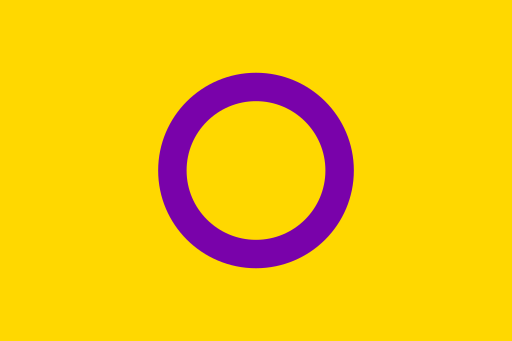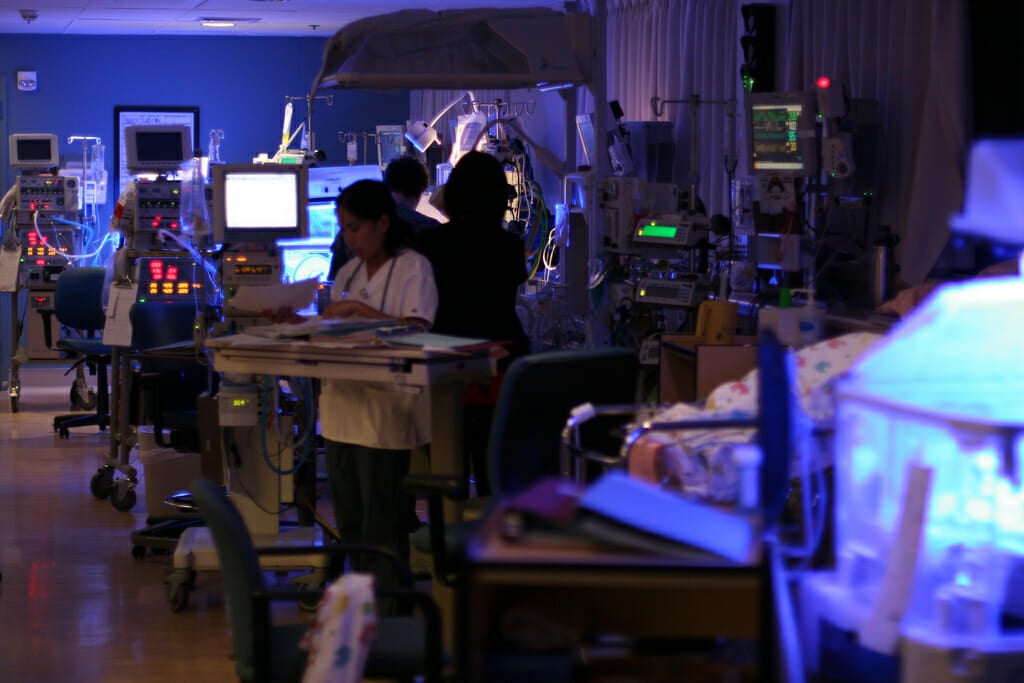The California legislature recently passed SCR-110, condemning surgeries and other medical interventions on intersex babies, a move celebrated by intersex rights activists.
Despite Planned Parenthood estimates that roughly 1 in every 100 people in the U.S. is born intersex, many people don’t know anything about intersex characteristics or people. However, as society comes to understand and value consent and bodily autonomy, the fight for intersex rights will likely only become more visible.
What is intersex?
InterACT, an organization that cosponsored SCR-110, defines intersex as “a term for biologically/physically not being strictly male or female sex. Having one of over 30 differences of sex development is the reason this can occur.”
How an intersex person personally sees this in relation to their gender identity is also different from person to person. This is one of the most important things to understand about intersex people: There are many different ways one can be intersex.
Some intersex traits are immediately noticeable at birth, like ambiguous sex organs; for example, a split scrotum that is shaped similar to labia, or a notably large clitoris. However, many intersex people have no visible intersex traits at birth. Some are developed during puberty, such as a male suddenly having breast development, which is a common result of Klinefelter Syndrome. Some are never visible; intersex traits can be seen in sex organs, but they’re also expressed in internal reproductive structures, hormone variations, and chromosomes.
Many people discover they are intersex when they are trying to conceive and are unable to due to infertility. Some people live their entire lives without knowing they are intersex, and it is posthumously discovered during the autopsy. Some people don’t know because they never saw any signs. Others don’t know because a doctor changed their bodies without their consent.

What is infant intersex surgery?
Surgery for intersex infants’ genitals was largely pioneered in the 1960s, following success with birth defect surgery. However, not all of the “defects” actually impaired function, such as many ambiguous genitalia. This made the surgeries unnecessary cosmetic procedures. Still, infant surgeries like clitoral reductions and turning micropenises into vaginas were continually more accepted until the 1990s.
In 1997, a man named David Reimer who, as an infant, had his penis turned into a vagina and was given sex hormones to make him into a girl told his story: He never felt he was a girl, causing immense pain in his life, and as soon as he found out about the surgery, he went on to live as a boy. Patient advocacy groups pointed to Reimer as an example of the damage done by intersex surgeries on infants, and the practice began to fall out of public favor.
READ MORE:
- Breaking down the difference between gender identity and sex
- What does it mean to be genderqueer?
- Everything you have never understood about being nonbinary
- Trans and nonbinary people explain what gender dysphoria feels like
Why infant intersex surgeries are harmful
Advocates against intersex infant surgery believe that sex and gender are complicated and personal. If any medical intervention happens to change the sex organs of an intersex person, it must happen when they are old enough to understand their gender and decide if that intervention is necessary.
“There is evidence that these surgeries cause severe psychological and physiological harm when performed without the informed consent of the individual,” the text of SCR-110 reads. The legislation continues to list those harms as “scarring, chronic pain, urinary incontinence, loss of sexual sensation and function, depression, post-traumatic stress disorder, suicidality, and incorrect gender assignment.”
Reimer, who convinced so many people of the dangers of these surgeries, struggled with mental health throughout his life, eventually ending his at age 38 in 2004. Intersex people who have non-consensual surgical intervention may suffer immense trauma from this violation of their bodily autonomy, and that trauma can be even more severe if the results of the surgical intervention are a source of gender dysphoria, which is experienced by 8.5 to 20 percent of intersex people.
The World Health Organization has discouraged genital surgeries on intersex infants in recent decades. Like other medical organizations, WHO cites both the physical and psychological risks. It has also been discussed as a human rights violation. Some people advocate for all these surgeries to be classified as genital mutilation. Some like surgeries used in the past on intersex babies, like clitoridectomies, are already considered as such in many places.

READ MORE:
- What does cisgender mean—and what is cisgender privilege?
- How does federal funding for Planned Parenthood actually work?
- How big is the transgender population, really?
- 10 surprising sex facts that will blow your mind
The movement to ban infant intersex surgeries
In spite of these statements from medical and human rights organizations, in addition to the lived experiences intersex people have shared, these surgeries are not against the law in most places. Malta was the first country to make non-consensual surgery illegal in 2015. The Council of Europe that same year didn’t exactly ban the surgeries. But it did say intersex people have a right not to have them.
Intersex people around the world have tried seeking reparations for suffering as a result of the surgery, with varying success. The case of an adopted South Carolina boy who the state decided at 16 months old should have his ambiguous penis removed to “match” the gender the state had assigned him is currently working its way through the U.S. courts.
Although public opinion and medical data has turned against these genital surgeries, studies suggest the surgeries may not actually be decreasing by much. In practice, people who “corrected” traits seen as defects may continue to do so. This is largely because they face no consequence and believe they’re doing what’s best for the patient.
The United States has no laws making intersex infant surgeries illegal. SCR-110, which condemns but does not outlaw these interventions, is the strongest piece of legislation against intersex infant surgery in the country. It may be a step in the right direction, but there’s still a long way to go.
